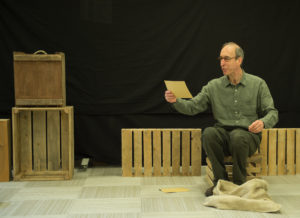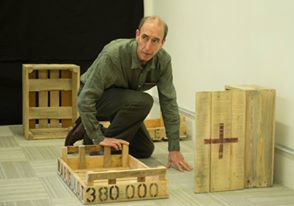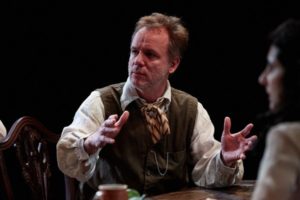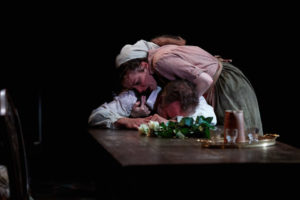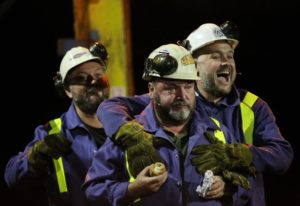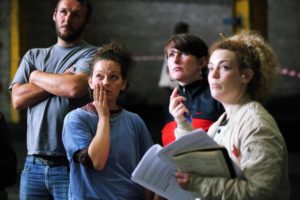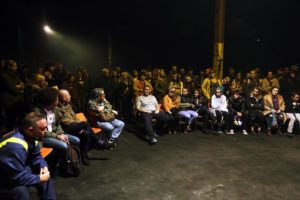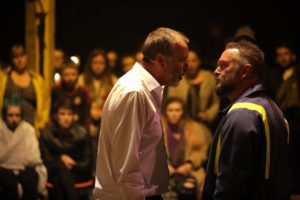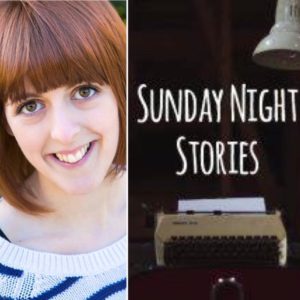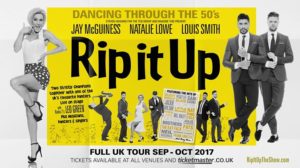
Dreamboats and Petticoats: Strictly stars tear up the dancefloor in Rip It Up
Having attended a fair few live shows featuring the Strictly cast, I can safely say that Rip it Up ranks among the best of them. Inventive, energetic and invigorating, Rip it Up was created, crafted and choreographed by fan favourite Strictly pro Natalie Lowe. Having recently left BBC’s flagship dance show after seven years (to the distress of many SCD fans, myself included), Natalie has shifted her considerable skill towards the theatre, being both the brains and brawn behind this 1950s-set dance spectacular. Joining her on tour are Strictly champions Jay McGuiness and Louis Smith, who lifted the glitterball with Aliona Vilani in 2015 and Flavia Cacace in 2012 respectively.
Directed by Gareth Walker, Rip it Up (named for one of the 50s songs it incorporates) follows the three principals and a slew of equally brilliant backing dancers as they shake, rattle and roll their way through some of the decade’s greatest songs – moving with ease from Elvis to Little Richard to Sam Cooke and Ritchie Valens. I’d forgotten how good these songs were, and how fabulous they are to dance to – but the considerable, combined talents of the Rip it Up ensemble brought it all back to me.
The show was split into different segments, each encapsulating a different type or trend of 50s music: rock ‘n’ roll, vocal harmony, blues, ballads, and Latin, as well as specific tributes to Buddy Holly, Elvis Presley, Little Richard and the Rat Pack. It was exhausting enough reading through the setlist, let alone watching the dancers perform to them! Natalie described the ensemble as the hardest working out there, and I certainly agree. Nothing was spared or suppressed – hearts and souls were bared on the dancefloor that night, and the audience was loving every second.
It was particularly gratifying to be a part of an audience that was as responsive to the show as I was – so often in modern theatre audience reaction is muted and formal, but just as the performers were giving every drop of energy and enthusiasm they had, so too were the people watching from their seats. Jay kindly acknowledged the audience response, thanking us for ‘making Monday night feel like Saturday night’. Well, Jay and the rest of the cast certainly made a rainy night in 2017 Cardiff feel like a summer’s day in 1955 NYC.
To enhance the feel of the time period, there was a brief TV montage interlude between each dance segment, showcasing some of the 50s’ cringiest commercials – including a toy advert for a truly bizarre sort of hula-hoop worn on the head called a ‘Swing Wing’, which was no doubt responsible for causing widespread whiplash during the decade. These were intercut with the ensemble’s pre-filmed cutesy interpretations of the era, as well as entertaining asides from the master of ceremonies, Leo Green, who also doubled as band leader and saxophonist.
Speaking of the music, the classic 50s hits were played with emotion and aplomb by a five-piece band, and what a joyful noise they made with so few. Along with Leo’s superb sax, we were treated to Ed Richardson on drums, Ian Jennings on bass, Jonny Dyke on keyboards and Matt White on guitars. I can’t stress how excellent the musicians were, including the two primary singers of the piece: Oliver Darling (who sported Buddy Holly glasses during his tribute) and Jill Marie Cooper, an exclusive treat for Cardiff audiences. They not only captured the spirit of the songs, but of the generation – although at times, they did tend to belt ballads that could have done with a softer touch. A small price to pay for the marvellous music overall – I would happily have paid to see the musicians and singers alone, but here they enhanced and accentuated the equally wonderful work of the dynamic dancers.
Natalie Lowe embodied the charm and elegance of the era, seamlessly slipping from Grace Kelly-esque screen siren to Elvis-like leather-clad rock ‘n’ roller, and countless other characters in between. She utterly evoked the ingenue of her introductory song, Jackie Wilson’s Reet Petite (‘the finest girl you ever want to meet’). Her standout number was a beautiful ballroom show-dance to the Righteous Brothers’ Unchained Melody, as well as a cheeky jive to a medley of 50s jitterbug. Not to mention she was responsible for overseeing and choreographing everyone else, and ensuring that every part had a unique and different feel, facet and flair. Her exit is a loss to Strictly, but a magnificent gain for the stage, and I can’t wait to see what she has waiting in store for us next.
Supporting our superb leading lady were two highly capable, and yet incredibly different, leading men: Jay McGuinness, whose unique brand of cool, chivalrous charm embodied the era’s sweetness simmering beneath the surface; and Louis Smith, whose fiercely flirtatious brand of fun complemented Jay extremely well. They couldn’t be less alike, except in their attempts to vie for Natalie’s affections, alternately foxtrotting and jiving their way into her heart. For two Strictly champions who had both been unfairly criticised by the judges for their supposed lack of personality during their tenure, it was particularly satisfying to see Jay and Louis not only having improved since their deserved wins, but infusing their routines with so much character, confidence and flair. They fit in perfectly alongside the pros, and skilfully held their own alongside them.
Jay’s entrance was the most impressive by far. Clad in black from head to toe, he spun around in the shadows and de-hatted himself, giving the impression that he had appeared out of thin air. He certainly encapsulated the gung-ho gusto of his intro song, Jerry Lee Lewis’ Great Balls of Fire. He also demonstrated a wide range of theme, technique and emotion (as he had done on Strictly), performing with passion and panache in every style of dance from waltz to cha cha and an artsy modern number to Nat King Cole’s Unforgettable that evoked his winning show-dance. And, of course, his jive prowess were second to none, as it has been ever since he and Aliona’s Pulp Fiction tribute broke the internet. Jay didn’t just shine whilst dancing; he also graced us with lovely renditions of some of the staple songs of the 50s, including the incomparably classy Beyond the Sea and a sultry rendition of Sway. Out of all the Strictly champions, Jay has the greatest potential to take the West End by storm – singing, dancing, acting, what can’t he do? I hope his recent stint as the lead in Big! The Musical is the first of many in a long line of stage shows in Jay’s future.
Louis, last but certainly not least, leapt onto the stage to Little Richard’s Tutti Frutti; from start to finish he looked like he was having the most fun by far – and that’s really saying something in an altogether joyous production. Although Louis performed in Strictly alum Robin Windsor’s Keep Dancing tour at Cardiff’s New Theatre last year, and has improved even since through joining Rip it Up, he confessed he hadn’t been sure if he could or should carry on dancing in live productions. But after a great experience with Natalie, Jay and the gang (and some vehement audience encouragement), it (thankfully) looks as though Louis isn’t going to hang up his dancing shoes any time soon. He looked as though he lived every moment of every dance, and possessed the most vibrant personality and stage presence of the entire ensemble. His gymnastics skills always shone during his Strictly stint, but here he has honed his dance technique and performance into sophisticated and stylish perfection. He excelled in solo, partner and group dances, really capturing the mischievous, rebellious feel of the era and starring in some of the strongest set-pieces: a sulky, sultry number to Peggy Lee’s Fever was a particular highlight, as well as a geeky romance against the backdrop of Sam Cooke’s Wonderful World. Louis’ Strictly journey keeps evolving, and long may it continue – Cardiff will certainly be there to welcome him back to the stage in the future.
If ever a stage show was an ensemble success, that show is Rip it Up. Every single backing dancer performed to the same superb standard as the principals and musicians, and were given ample time to shine both alongside and separate from the three leads, yet another testament to the team spirit of the entire production. Though the set itself was sparse, the performers and costumes made up for the minimal production values (totally understandable on a tour budget). However, despite how impressive the three leads’ solo numbers were, I would have loved to have seen the three of them sharing the stage more often. Natalie, Louis and Jay appeared together to bookend each segment, but then split up to perform numbers in which they individually featured (accompanied by partners or backing dancers), but rarely with one another. Because of the rarity of their onstage collaboration, one of the standout numbers for me was Jay and Louis engaging in what I can only refer to as a ‘James Dean-Off’ in which the two Strictly champs did their damned-est to out-Brando each other in rolled-up jeans and white Ts. In a similar vein, I think there should have been a story running through the show (just as Vincent and Flavia often have in their live shows); in doing so, they could build on the natural flirtation between Natalie, Jay and Louis, and incorporate their love triangle into a more structured through-line. It would have added a narrative cohesion to the excellent dance numbers, rendering them not only exciting but necessary in advancing the plot and our leads’ love lives.
Overall, Rip it Up is a truly wonderful theatrical experience that I urge anyone with even the vaguest interest in dance, music, theatre, The Wanted or gymnastics to go to if humanly possible. It’s great to see familiar faces again, as well as discovering new ones, and I can’t wait to see where Natalie, Jay, Louis and company go from here – I only hope that they keeeep dancing
http://www.stdavidshallcardiff.co.uk/whats-on/dance/rip-it-up/

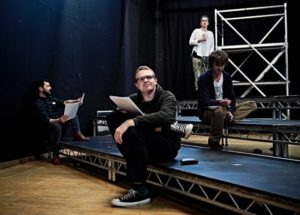
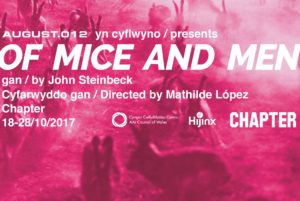

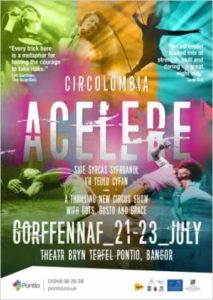

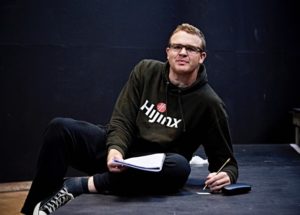

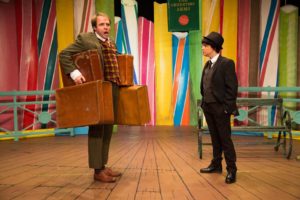
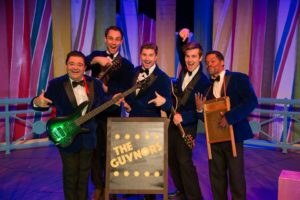
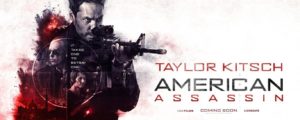
 (1 / 5)
(1 / 5)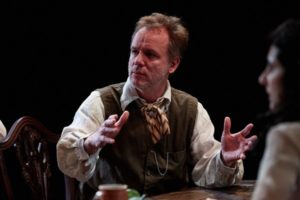

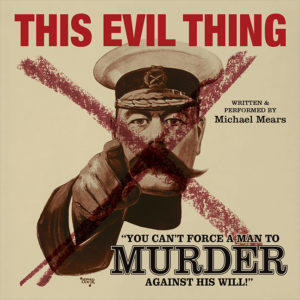
 (4 / 5)
(4 / 5)